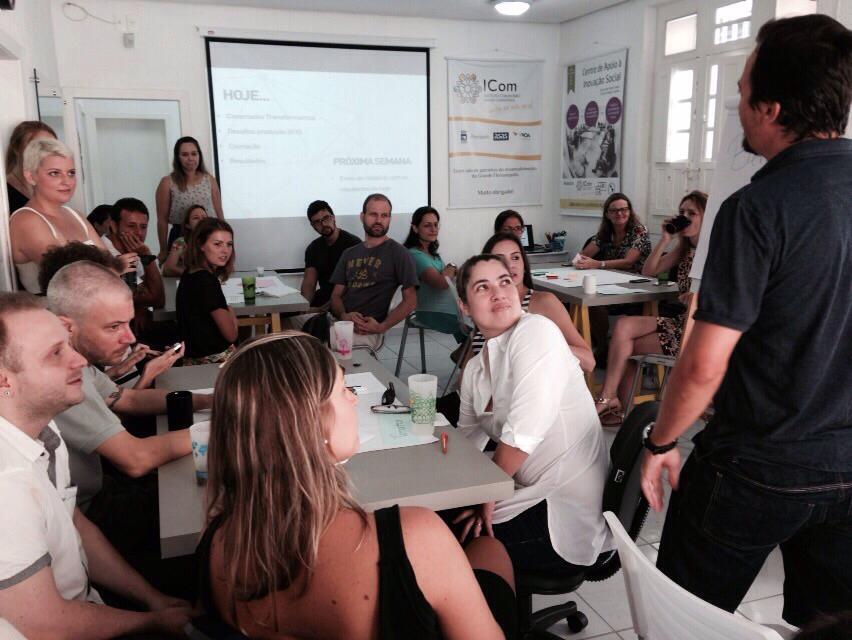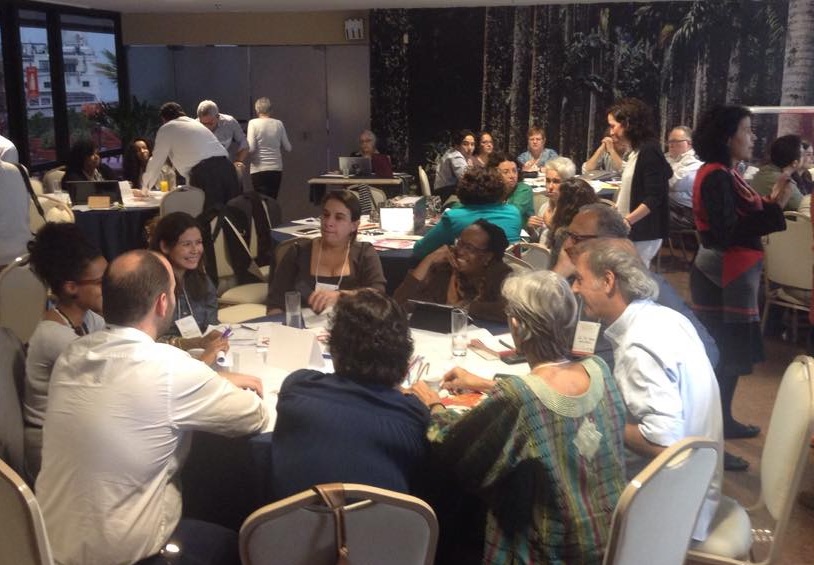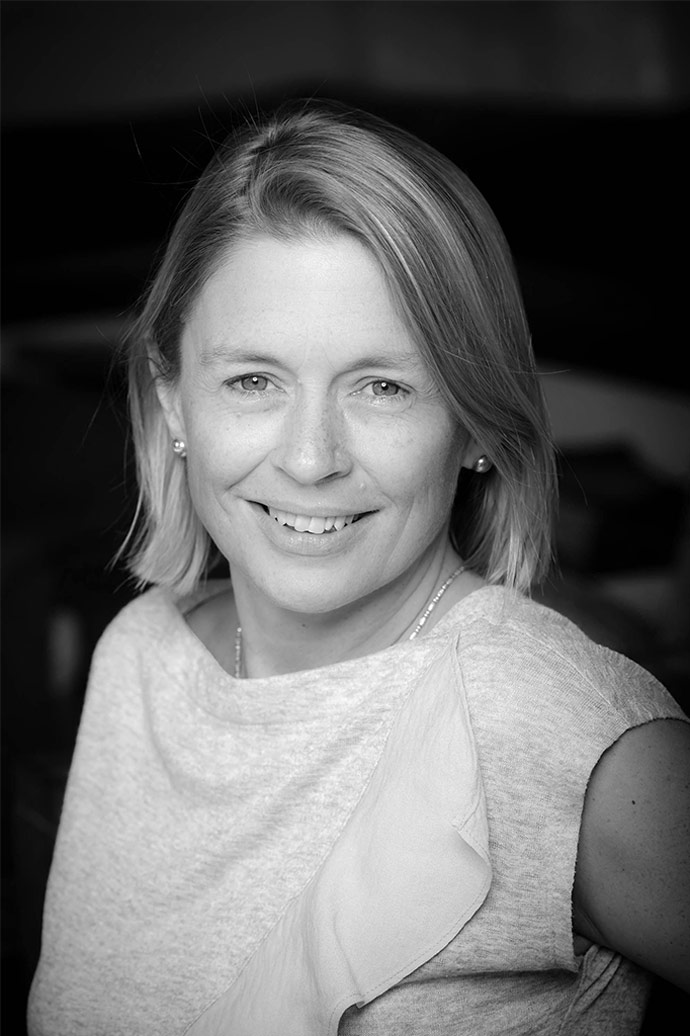Brazil, and the growth of community philanthropy
18 Aug 2015
Community foundations and funds are increasing in number in Brazil, but are still just the tip of the philanthropic iceberg in this sprawling country of over 203 million people. They are working in a nation of contrasts, with the 2014 Forbes Annual Report listing 65 Brazilian billionaires, while 21.4% of the population live below the World Bank poverty line (2012) and 16% exist in conditions of abject poverty. It is also striking that only three in ten of the poorest 20% of the population are white, but they comprise seven in ten of the richest 20%. This context frames the development of both place-based and issue-focused local philanthropy, as does the legacy of experience and attitudes.
The Olympic city
Rio de Janeiro is playing host to the 2016 Olympic Games that will take place in the very area of the city prioritized by Instituto Rio (IR) for its work – the populous West Zone. As the first community foundation in Brazil, IR was established in 2000 and began its grantmaking in 2003. Since that time it has supported 222 projects in 80 community-based organizations. The grants are relatively modest ($2500 – $4000 USD) but they come with an impressive added-value programme of shared learning delivered through the imaginative Community University of the West Zone (Universidade Comunitária da Zona Oeste). The virtual university recognizes the expertise garnered by local activists and creates networks for peer exchange. IR Chief Executive, Graciela Hopstein is the first to acknowledge that local fund development is still a challenge, but given its location it would be a shame if the 2016 Olympics comes to Rio, and leaves again, without directly benefiting both IR and the communities that it is supporting.
 Graciela Hopstein (L) and Avila Kilmurray (2nd L) in RioAcross the city, just a stone’s throw away from the linha vermelha, a main route into the city centre, Eliana Sousa Silva has a gleam in her eye as she talks about establishing a community foundation in Bairro Maré. Bairro Maré has a population of 140,000 in a favela that consists of a warren of streets stretching across sixteen distinct neighbourhoods. Eliana is a founder member of the Redes de Desenvolvimento da Maré and has been active over eighteen years in supporting community action in an area that was not even mapped by the municipal authorities. In partnership with the Observatόrio de Favelas local activists in the Bairro took matters into their own hands, carrying out a local census, giving the streets names and the houses numbers, and convincing the authorities to “make visible a population that was invisible.” Other community initiatives focus on education, health, development through the arts and public safety. A community newspaper is delivered door to door, with a circulation of 40,000 copies, on a monthly basis. The challenge for Eliana and her colleagues is how to both keep the community momentum going and how to plan for the long term. The Redes feels that part of the answer may be found in setting up a community foundation that could enable local people to become decision-makers in their own right. “Usually people are waiting – spectators of their environment”, explains Eliana, a local community foundation could be a mechanism to help shift the power paradigm in the longer term. What Eliana now needs is information, ideas and support in taking the next step.
Graciela Hopstein (L) and Avila Kilmurray (2nd L) in RioAcross the city, just a stone’s throw away from the linha vermelha, a main route into the city centre, Eliana Sousa Silva has a gleam in her eye as she talks about establishing a community foundation in Bairro Maré. Bairro Maré has a population of 140,000 in a favela that consists of a warren of streets stretching across sixteen distinct neighbourhoods. Eliana is a founder member of the Redes de Desenvolvimento da Maré and has been active over eighteen years in supporting community action in an area that was not even mapped by the municipal authorities. In partnership with the Observatόrio de Favelas local activists in the Bairro took matters into their own hands, carrying out a local census, giving the streets names and the houses numbers, and convincing the authorities to “make visible a population that was invisible.” Other community initiatives focus on education, health, development through the arts and public safety. A community newspaper is delivered door to door, with a circulation of 40,000 copies, on a monthly basis. The challenge for Eliana and her colleagues is how to both keep the community momentum going and how to plan for the long term. The Redes feels that part of the answer may be found in setting up a community foundation that could enable local people to become decision-makers in their own right. “Usually people are waiting – spectators of their environment”, explains Eliana, a local community foundation could be a mechanism to help shift the power paradigm in the longer term. What Eliana now needs is information, ideas and support in taking the next step.
An integrated model of community support
Working in Maranhão, one of the poorest states in Brazil, the Baixada Institute was established in 2008 by community leaders in the area. Regina Cabral, an Ashoka Fellow (2010) was a founder member of the Instituto Formaҫāo which was a formative influence in the development of the Baixada Institute. The focus of both the Baixada Institute, as the local community foundation, and the Instituto Formaҫāo, as a development agency, is to work with local communities in the rural areas of Baixada Maranhense that are clustered in the north-east corner of Brazil. The area has a population of some 250,000 and has a history of labour migration and violent conflict over land rights. Regina speaks about the importance of investing in young people, raising their aspirations through education, sport, the arts and skills training. An important area of development has been in agri-ecology, where a combination of technical assistance, seeding grants and encouragement has resulted in pilot income generation horticultural projects, many carried out with black and quilombola (ex-slave) communities. Work over the years has resulted in the opening of fourteen Information Technology centres, with adjoining youth support centres, in rural towns and villages across the region. The idea of the community foundation (Fundaҫão Comunitária na Baixada Maranhense) came out of consultation with both young activists and community-based organizations. The community foundation continues to place a high priority on local consultation.
The Instituto Baixada operates from its own premises and was set up with initial financial support from the Kellogg Foundation. Among its goals is the support of community initiatives that empower local organizations and foster regional development. Fund development is also on the agenda and a donor network (Embaixadeiros Doadores) works to secure local donations. Regina explains that there is still a need for external support particularly given the developmental focus of the work which is seen by some as being at odds with traditional charitable giving. The work of the foundation is underpinned by a network of volunteers, which is found to be as beneficial as donations – although both are welcome.
With its concentration on Baixada Maranhense, Instituto Baixada draws on the networks and community insights built by Institute Formaҫāo, and other voluntary sector organizations, over the years. This allows strong lines of communication between the community foundation and local activists. It also ensures that there is transparency and a sense of mutual accountability in how Instituto Baixada delivers on its objectives. As to the next priority – the Institute Formaҫāo is working with communities in selected rural towns to open seven libraries, located in a range of venues. The Instituto Baixada plans to support this venture by allocating some $42,000 USD to purchase books. A seeding grant awarded to a group of young people involved in developing a community library last year already acted as a demonstration project.
Florianopolis – the southern Silicon Valley
ICom was established in 2005 as the second community foundation in Brazil. Working in Florianopolis, the second largest city in the southern state of Santa Catarina, this foundation emphasizes the importance of development support and capacity-building for local community and voluntary organizations. In order to counter public scepticism about the NGO sector it developed a transparency portal which holds detailed information on local organizations. ICom also facilitates training and professional development courses in order to promote institutional growth within organizations. Alongside its developmental objective of strengthening non-profit organizations, ICom also prioritizes knowledge production and community mobilization that it achieves through its Vital Signs research (adapted from the Community Foundations of Canada model); working with donors and social innovation.
The work with donors is long-term and time consuming, not helped by the complexities of Brazilian tax and fiscal regulations, however, ICom Executive Director, Anderson Giovani da Silva is celebrating a major gift received recently from an individual donor who has been involved with ICom over a number of years. Anderson rules out direct fundraising activities and events as he does not want to be in competition with the local organizations that ICom is supporting. It is the area of social innovation where ICom has made a specific contribution, opening its offices as a Centre for Social Innovation and sharing them with social entrepreneurs. A new start-up 3 D design company currently operates from the space, with Anderson also being involved in raising funding for investment in a high quality movie – featuring four stories of young people using technology for social change purposes. A grant from the Inter-American Foundation is currently supporting the development of this centre. Anderson’s belief in the power of innovative design thinking to progress social change and bring a new dimension to the philanthropy of the future can be seen in ICom’s partnership with the Institute of Volunteering in taking a stake in Social Good Brazil.
 The ICom office, operating as a Centre for Social InnovationThis has now spun off as an independent entity but re-invests a donor advised fund with ICom. Both ICom and Social Good Brazil are partners in an annual call for design ideas for products that can address social issues in an imaginative way. Piloted in 2013, fifty social entrepreneurs were invited to participate and receive mentoring through a Social Design Lab; they also benefited from $250 USD seed funding that ICom managed. One example of work supported was an app for use in the case of domestic violence. Participants were initially drawn from Florianopolis, but the popularity of the programme has resulted in it being extended to São Paulo. This may not be community philanthropy as it is commonly understood, but it seems to be a model that is working in Florianopolis, a city that prides itself as a technology hub.
The ICom office, operating as a Centre for Social InnovationThis has now spun off as an independent entity but re-invests a donor advised fund with ICom. Both ICom and Social Good Brazil are partners in an annual call for design ideas for products that can address social issues in an imaginative way. Piloted in 2013, fifty social entrepreneurs were invited to participate and receive mentoring through a Social Design Lab; they also benefited from $250 USD seed funding that ICom managed. One example of work supported was an app for use in the case of domestic violence. Participants were initially drawn from Florianopolis, but the popularity of the programme has resulted in it being extended to São Paulo. This may not be community philanthropy as it is commonly understood, but it seems to be a model that is working in Florianopolis, a city that prides itself as a technology hub.
New community funds emerging
Two recent developments have seen the emergence of a community fund and a community foundation in the East Zone of São Paulo and southern Bahia respectively, two very different contexts. With a population of ten million, São Paulo is the world’s third largest city, but the Fundaҫão Tide Setubal – a family foundation – concentrated its energies in the São Miguel district of the East Zone. The foundation became particularly known for its programmes of work with young people and investment in family support. Adopting a new approach the foundation decided to establish the Fundo Zona Leste Sustentável as a five year pilot exercise which was inspired by a discussion about community foundations involving a number of local stakeholders. An Oversight Board for the initiative was set up and a Monitoring and Evaluation Board, drawing on expertise from a local university. The Fund itself is focusing on business start-ups and technical support, funding 31 projects to date. Amongst those benefiting is a garbage collectors’ cooperative. One of the three staff members employed by the Fund emphasizes that it is still a community fund rather than a foundation – the jury is still out as to whether it will develop into a community foundation.
Roberto Vilela, working with the recently established community foundation in southern Bahia, is celebrating the fact that a recent grant call attracted 65 applications. The Tabôa Fortalecimento Comunitário was set up in 2013 with initial funding being put in place by Instituto Arapyaū, the World Bank and a foundation established by documentary filmmaker, Joāo Moreira Salles. Tabôa operates in the Uruҫuca region of Bahia which faces challenges of degradation of natural resources, economic inequality and under attainment in education. Consequently the new community foundation is prioritizing the strengthening of grassroots development associations and supporting community tourism projects that benefit local people. As a good grantmaker, Roberto is already thinking about how to respond to those grant applicants that may not be successful in being funded under the current round. He wants the application process to be empowering and is keen to build capacity and learning for local organizations. Decision-making in the community foundation is already participative, with the board currently made up of five representatives from the donors and five people from the local community.
A comparative approach to community foundation development
Representatives from the four Brazilian community foundations, as well as from the Fondo Zona Leste Sustentável and Redes de Desenvolvimento da Maré all attended a two-day conference on philanthropy for social justice organized in July by the Brazilian Network of Independent Funds for Social Justice. Joining with a number of other issue-focused funders the gathering recognized the need to create a narrative capable of motivating people to address issues of structural inequality and implicit racism. A follow-on seminar on the specific role of community philanthropy highlighted the important dimension of local engagement that community foundations can offer, although concerns were expressed at continuing difficulties in attracting a mix of donors to invest in this work.
 Brazilian Network of Independent Funds for Social Justice, July 2015What became apparent over the course of the seminar is that Brazil offers a fascinating insight into how community foundations can emerge and be incubated through a variety of approaches. The origins of both Instituto Rio and ICom were influenced by the North American model of community foundations, fostered through international contacts and support. Tabôa Fortalecimento Comunitário has developed as an initiative of Instituto Arapyaū with a similar progression route to the Fundo Zona Leste Sustentável, should it decide to pursue this course further; whilst Instituto Baixada shares a sense of rooted local development that also characterizes the plans of Redes des Desenvolvimente da Maré. This latter phenomenon of community foundations, or funds, developing as mechanisms of sustainability for locality-based or regional community development is emerging in other country contexts as well. The comparative nature of the incubation and growth of community foundations in Brazil offers an important opportunity to track both opportunities and challenges presented by these different development paths and to welcome the diversity that is a response to local context.
Brazilian Network of Independent Funds for Social Justice, July 2015What became apparent over the course of the seminar is that Brazil offers a fascinating insight into how community foundations can emerge and be incubated through a variety of approaches. The origins of both Instituto Rio and ICom were influenced by the North American model of community foundations, fostered through international contacts and support. Tabôa Fortalecimento Comunitário has developed as an initiative of Instituto Arapyaū with a similar progression route to the Fundo Zona Leste Sustentável, should it decide to pursue this course further; whilst Instituto Baixada shares a sense of rooted local development that also characterizes the plans of Redes des Desenvolvimente da Maré. This latter phenomenon of community foundations, or funds, developing as mechanisms of sustainability for locality-based or regional community development is emerging in other country contexts as well. The comparative nature of the incubation and growth of community foundations in Brazil offers an important opportunity to track both opportunities and challenges presented by these different development paths and to welcome the diversity that is a response to local context.
By: Avila Kilmurray, GFCF Director of Policy & Strategy

